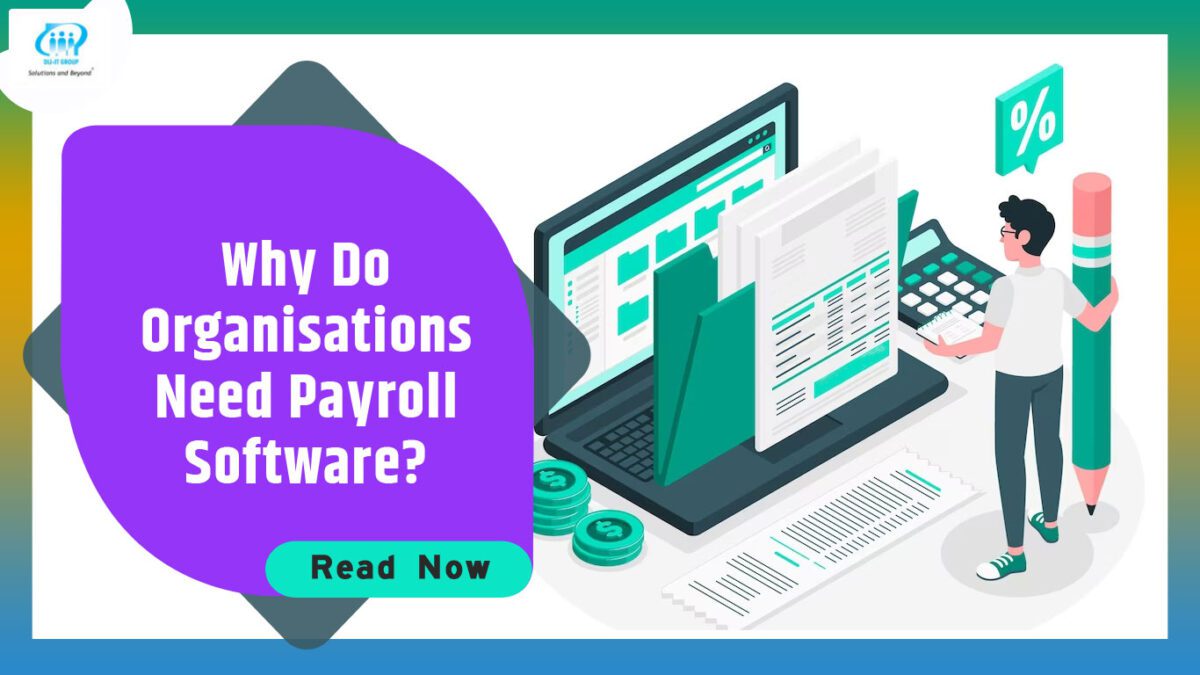Why Do Organizations Need Payroll Software? Small businesses are abundant, and the level of competition is higher than ever before. One crucial aspect of achieving organizational success is attracting and retaining the most talented employees. To accomplish this, paying more attention to every small detail regarding employee satisfaction is paramount.
Investing in the appropriate software can greatly assist organizations in achieving this goal. The current approach of small and medium enterprises (SMEs) in handling their human resources often lacks productivity. It is because organizations mostly hire employees solely to perform their assigned tasks. The potential for human error and its detrimental impact on employees and the organization gets little to no consideration.
This is precisely why comprehensive payroll software is an excellent choice for SMEs. Such software offers numerous advantages that ensure efficiency, timeliness, accuracy, precision, and cost-effectiveness.
It automates payroll processes and seamlessly integrates them with attendance and time management. Therefore, HR professionals can focus on core business issues rather than being constantly burdened with administrative tasks.
What does Payroll Software do?
Whether hosted on-premises or in the cloud, payroll software is a solution for managing, maintaining, and automating employee payments. When implemented effectively with robust features and proper configuration, payroll software can assist organizations of any size. It helps adhere to tax laws and financial regulations while cutting costs.
This enables human resources (HR) teams to break free from mundane tasks, granting them more opportunities to focus on strategic activities such as planning, budgeting, and other forward-thinking initiatives.
Why Do SMEs Need Payroll Software?
Effective payroll management is an essential responsibility for every business organisation. Fortunately, in the digitally advanced world, state-of-the-art payroll technology is available to automate the process of salary payments to employees.
By implementing reliable payroll software, your HR teams can allocate their time and energy toward strategic initiatives and other core HR functions. These activities include planning, budgeting, and ensuring the well-being of employees.
Following are some reasons why you must invest in a functional payroll solution in your organisation:
-
Avoid errors
Payroll system errors can be a nightmare. However, a remarkable benefit of using payroll software is its ability to reduce these costly errors. Overlooking employee considerations when making an error could dampen morale and lead to potential legal issues for you and your company.
In the event of an overpayment mistake, it could leave your company with insufficient working capital, resulting in a complicated logistical challenge to rectify the situation. The advantage of utilising payroll software is that it significantly decreases the risk of human error, ensuring that your employees receive the precise salary they deserve while avoiding such detrimental scenarios.
-
Compliance
By integrating digital payroll systems with various business functions like finance and accounts, a global HR software system can provide a seamless payroll calculation process across different regions and countries. This system automatically adapts to local taxes and regulations in each country, ensuring compliance with global operations transparently and efficiently.
-
Data Accuracy
Utilizing online payroll software boosts the overall productivity of operations, thereby reducing the risk of errors that could potentially upset frontline employees. This not only alleviates one concern for you but also aids in retaining your top-performing employees.
Implementing an automated system helps cut costs associated with human errors or other shortcomings. It also saves time by minimizing the back-and-forth data exchange between your staff and the HR or accounting departments.
-
Seamless consolidated reporting.
Generating payroll reports can be a time-consuming and challenging task. In the traditional setup of separate HR and payroll systems, consolidating employee data for reporting purposes involves gathering information from various sources with different formats, fields, and definitions.
The manual extraction of required data from these systems is highly laborious and susceptible to errors. However, with an integrated HR and payroll system, HR and payroll data seamlessly converge on a centralized platform.
Payroll management personnel gets relief from the burden of manually calculating taxes and deductions as the system automates these processes. Any changes made to employee data in either field will automatically reflect in both areas.
As a result, comprehensive payroll reports become more accurate, and one can compile them without excessive time and effort.
In the coming years, one can expect payroll systems to evolve to accommodate the expanding diversity of payment structures and work roles. Alongside traditional nine-to-five salaried employees, there will be an increasing number of wage earners and gig workers, many of whom will operate remotely.
The need for flexible payroll systems will be crucial to facilitate compensation in various forms. It may include project-based payments, contracts of different lengths, and diverse pay periods. Artificial intelligence (AI) and business intelligence will play a role in enhancing automation and optimizing workflows.
Ensuring security will remain an ongoing challenge for organizations of all sizes. Implementing rules-based validation and roles-based data access will be vital, particularly as the remote workforce grows. So, it only makes sense to outsource a reliable HR software provider to implement payroll software solutions in an organization.
To know more you can contact us at info@dli-it.com.
